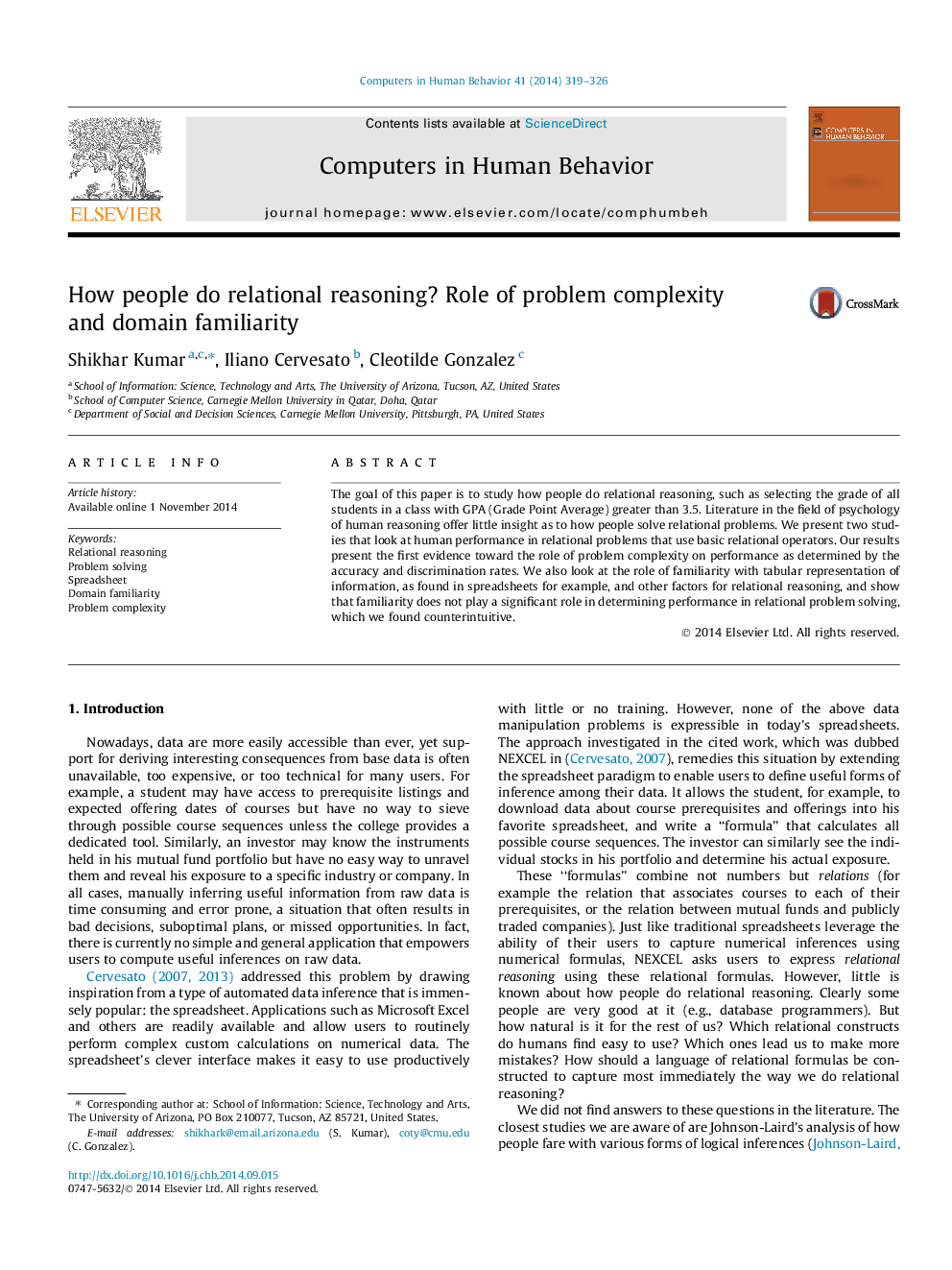| Article ID | Journal | Published Year | Pages | File Type |
|---|---|---|---|---|
| 350403 | Computers in Human Behavior | 2014 | 8 Pages |
•The goal of this paper is to study how people do relational reasoning.•We present two studies that look at human performance in relational problems.•Our results present the first evidence toward the role of problem complexity on performance.•We did not find any evidence suggesting any role of familiarity with spreadsheets.
The goal of this paper is to study how people do relational reasoning, such as selecting the grade of all students in a class with GPA (Grade Point Average) greater than 3.5. Literature in the field of psychology of human reasoning offer little insight as to how people solve relational problems. We present two studies that look at human performance in relational problems that use basic relational operators. Our results present the first evidence toward the role of problem complexity on performance as determined by the accuracy and discrimination rates. We also look at the role of familiarity with tabular representation of information, as found in spreadsheets for example, and other factors for relational reasoning, and show that familiarity does not play a significant role in determining performance in relational problem solving, which we found counterintuitive.
